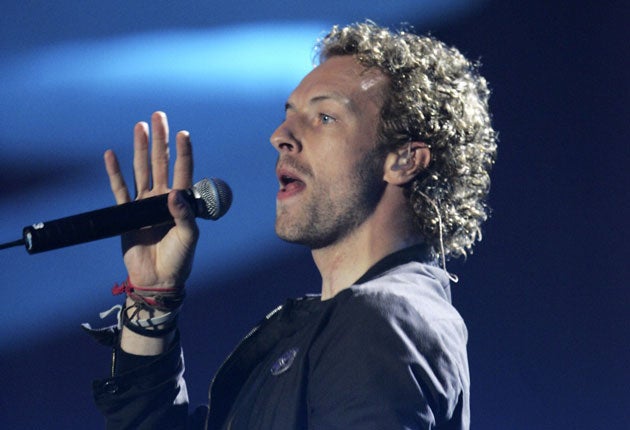Greatest hits dominate festivals as old rockers replace young bands

Festival stages will resound to veteran rock acts this summer because of a dearth in new stars breaking through to headline status.
The music industry's failure to break new acts with long-term potential is now limiting the choice for promoters, who are being forced to pay big money to a limited number of established stars. Headline acts this summer include Pulp and Suede along with veteran rockers U2, Bon Jovi, Morrissey and The Cure.
The most popular ticket-sellers – Foo Fighters, Eminem, Muse and the Chemical Brothers – began their recording careers in the 1990s, while Coldplay and The Strokes are now a decade into their careers.
However, until recently, it was common for bands such as Arctic Monkeys to break through on the live circuit and become instant headline draws.
Research by Music Week found that, of the headline artists announced so far for seven of the summer's biggest music festivals, just two out of 19 broke through in the past three years. But in 2007 more than half of the 20 headline acts at the same festivals were new artists.
Glastonbury, which this June will rock to Coldplay once again, sought to broaden the pool of traditional guitar-wielding headliners by controversially booking Jay-Z in 2008. Beyonce will close the 2011 festival.
A collapse in sales for guitar-based rock has halted the conveyer belt of new stars. The class of 2007 – Kaiser Chiefs, Razorlight, The Zutons and The Kooks – no longer command top of the bill status. The number of UK debut albums reaching the Gold disc level of 100,000 sales has slumped from 27 in 2007 to just nine last year.
Paul Williams, head of business analysis at Music Week, said: "Record companies have been struggling for several years to break new rock acts in a market dominated by pop, R&B and hip hop. That is now starting to hit the main festivals because the organisers still want rock groups but not enough successful ones are coming through.
"As a result festivals are having to rely on old favourites such as U2 and Coldplay to fill the new talent gap, while many feel booking newer, non-rock acts is a risk as they may not appeal to a wide enough audience."
Jon Dunn, music booker for the Latitude Festival in Suffolk, said: "It's harder to breed headliners today. Previously, bands have been nurtured before a mainstream audience. There are so many more festivals today so bands have to be careful not to over-play."
John Giddings, promoter of the Isle of Wight festival, which has secured Foo Fighters and Kings of Leon as headliners, said there were "simply too many events" each summer.
Agents acting for the limited number of big-name acts can hold out for a top headlining fee, with promoters forced to pass on the expense to fans in increased ticket prices.
Music Week found that the price of a festival ticket with camping has soared by 130 per cent over the past decade, compared to an inflation figure of 24 per cent.
Although tickets have sold out for Glastonbury, V and other big festivals, there are signs that the live sector has peaked. Total box-office sales of the world's top 50 tours fell 12 per cent in 2010 to £1.9 billion. Only Lady Gaga broke into a top 10 led by veterans Bon Jovi, AC/DC and U2.
Promoters are backing Mumford & Sons to become the next big UK stadium act, but they are frustrated that two potential headliners are unavailable. Amy Winehouse is still recording her Back To Black follow-up, while Adele, the world's top-selling artist this year, has said that she does not want to perform at festivals.
Join our commenting forum
Join thought-provoking conversations, follow other Independent readers and see their replies
Comments
Bookmark popover
Removed from bookmarks